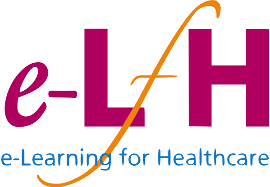Filter Resources
49 Resources
The East Genomics e-learning platform is a resource for healthcare professionals looking to deepen their understanding of genomic medicine.

The East Genomics e-learning platform is a resource for healthcare professionals looking to deepen their understanding of genomic medicine.

The East Genomics e-learning platform is a resource for healthcare professionals looking to deepen their understanding of genomic medicine.

The MECC elearning programme is designed to support learners in developing an understanding of public health and the factors that impact on a person’s health and wellbeing. It focuses on how asking questions and listening effectively to people is a vital role for us all.

Many men experience a gradual decline in bioavailable testosterone with age. It is associated with osteoporosis, diabetes, heart disease, depression and cognitive decline. This session provides an overview of investigation and management. This session was reviewed by Khyati Bakhai and last updated in March 2020.

This session explains what gender affirmation means and why it matters. It outlines the pathways for attaining gender affirmation in the NHS and gives an overview of some of the surgical techniques used. It also discusses breast cancer incidence in the trans and gender-diverse population and reinforces the importance of breast cancer screening.

Most would agree that regular, constructive and developmental feedback to colleagues is a healthy part of the culture of any business or organisation. Yet sometimes feedback needs to be more direct especially when challenging undesirable or simply unacceptable behaviours of colleagues. Although these conversations are at times needed, they are continuously at risk of getting postponed or deemed as just too difficult and therefore avoided altogether.

Training in the use of the Joy Digital Platform does not need to be a one-off event. The online foundational training helps new staff become confident using the digital platform and it is also useful for those staff who require a Refresher Course to build on their learning.
The Cultural Competence and Cultural Safety elearning tool is made up of three 20-30 minute learning sessions. The purpose of the tool is to support clinicians in the NHS to gain knowledge and understanding of the issues around culture and health; and how this might influence health care outcomes.

The new e-learning site, developed by NHS East Genomics with support from the national Genomics Education Programme, is open to healthcare professionals looking to develop their knowledge and professional practice around genomic medicine and testing

This elearning programme aims to support the health and care workforce in developing the knowledge and skills required to enable appropriate wound care to be delivered to people in any setting.

This training is for everyone wherever they work in healthcare and explains in a clear and consistent way what speaking up is and its importance in creating an environment in which people are supported to deliver their best. It will help you understand the vital role you can play and the support available to encourage a healthy speaking up culture for the benefit of patients and workers.





